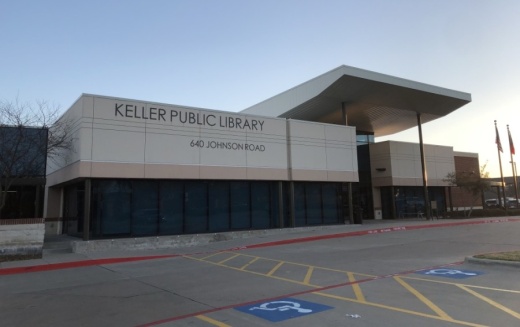Fort Worth proposed major changes to the MetrOPAC contract in February 2019, Keller library Director Jana Prock said. The current agreement lets residents of Fort Worth, Burleson, Haltom City, Keller, Richland Hills and Watauga use their library cards at public libraries in any of those cities to check out and return books.
However, each library sets its own policies for due dates, renewals and fines. The newly proposed contract would let Fort Worth set those terms for all libraries in the consortium.
With input from city and library staff members, the Keller Library Board voted unanimously to not renew the contract with Fort Worth, according to a city announcement.
Leaving the consortium will let the Keller Public Library tailor its library materials and management system to the needs of its residents, Keller Library Services Manager Kelly Holt said.
According to the announcement, the MetrOPAC contract was meant in part to let libraries in the consortium share a management system and split the cost of software. Now, the Keller library is exploring other integrated library system options, Prock said.
The first year after the contract ends will involve a lot of monitoring and data collection to find out what changes need to be made to the library's physical collection. The digital collection will not be affected by the change. According to statistics provided in the Feb. 24 announcement, 18% of the library materials that Keller residents checked out in 2020 came from other libraries in the consortium, while 40% of the materials that the Keller library lent out went to those other libraries.
“Is that going to mean it’s going to take me longer to get the materials I want? We don’t really know,” Keller Public Information Officer Rachel Reynolds said. “If what you want is something that used to have a really long waiting list coming from a lot of other cities’ residents, you suddenly might have a much shorter waiting list if you're only kind of competing against Keller residents.”
Though the MetrOPAC contract will expire Sept. 30 and the Keller library expects to start transitioning to a new normal in June or July, the decision was communicated to the public in February for several reasons.
Holt said the library can now start collecting feedback about what kind of materials residents are most interested in, whether that means specialized collections or broadly popular bestsellers. Residents will still be able to request books from Fort Worth and other libraries, but the process will take longer.
“We’ve made it so easy to access [other libraries’ collections] with just a couple clicks, and then a couple days and it’s here,” she said. “So they may be used to that and not know yet.”
Nonresidents can still pay $25 for a Keller library card, the cost of which is based on how much of a Keller resident’s property taxes go to the library each year, which Holt said is standard for Texas libraries.
“We just ask that other people who want to use the library just put in the pot the same amount, so we have that money to make up for the extra people coming in,” Holt said.
Reynolds said announcing the changes so early will let residents of other cities, particularly northeast Fort Worth, decide whether they want to keep using Keller’s library as their main library.
“For a lot of those families, they've been coming here so long that they still think of the Keller library as sort of their home library,” she said. “This is where they're comfortable. This is where their kids have, you know, grown their love of learning and books. They feel a very strong connection to this library, and we knew that that was going to be a hard communication.”





